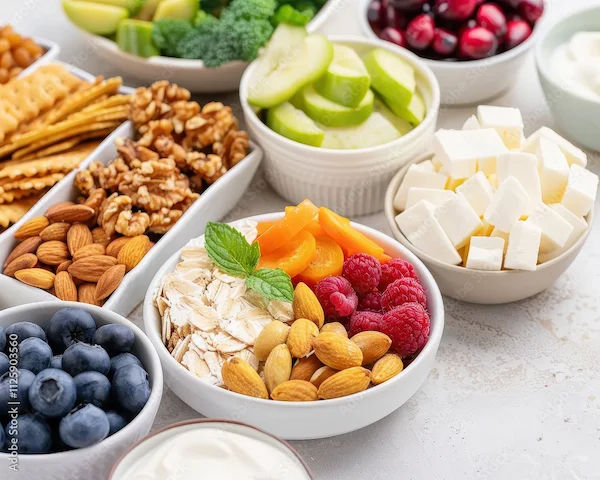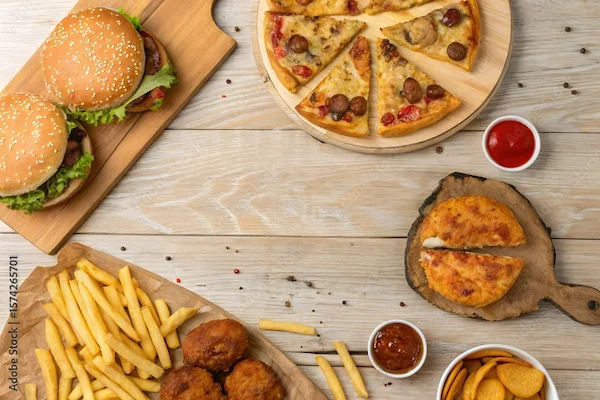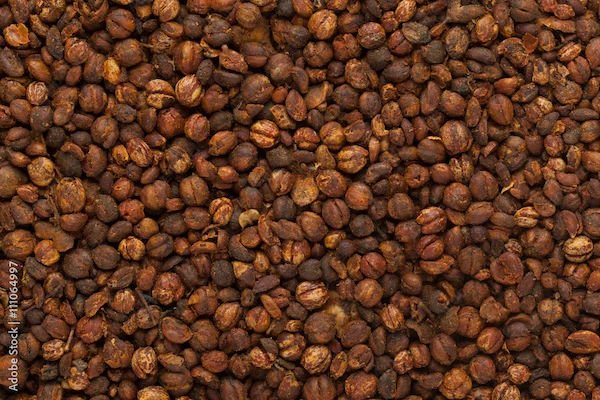Diabetic-Friendly Foods in India
Know all about diabetic friendly foods, healthy dietary habits, and what are the best diabetic friendly foods. Learn about the friendly tips for food.

Written by
Last updated on 20th Jul, 2025

Introduction
Living with diabetes doesn’t mean giving up delicious food. With the right choices, you can enjoy tasty meals while keeping your blood sugar levels in check. India offers a variety of nutritious, diabetic-friendly foods that are both healthy and satisfying. This guide will help you make smart food choices to manage diabetes effectively.
Understanding Diabetes and Diet
Diabetes is a condition where your body struggles to regulate blood sugar (glucose) levels. What you eat plays a crucial role in managing diabetes because certain foods can cause blood sugar spikes, while others help stabilise it.
Key Dietary Goals for Diabetes:
Control carbohydrate intake – Carbs directly affect blood sugar, so choose wisely.
Include fibre-rich foods – Fibre slows sugar absorption, keeping levels steady.
Opt for healthy fats and proteins – They help maintain energy without spiking glucose.
Avoid processed and sugary foods – These cause rapid blood sugar fluctuations.
Consult Top Nutritionists
Best Diabetic-Friendly Foods in India
Here’s a list of diabetes-friendly foods commonly found in Indian kitchens:
1. Whole Grains (Low Glycemic Index Carbs)
These are some of the best diabetic food options:
Brown rice – Better than white rice as it digests slowly.
Quinoa & millets (Bajra, Jowar, Ragi) – Rich in fibre and nutrients.
Oats – A great breakfast option with minimal sugar impact.
Whole wheat chapati (instead of refined flour) – More fibre, less sugar spike.
2. High-Fibre Vegetables
The high fibre vegetables included are:
Leafy greens (Spinach, Methi, Kale) – Low in carbs, high in nutrients.
Bitter gourd (Karela) – Helps lower blood sugar naturally.
Beans & lentils (Rajma, Chana, Moong Dal) – Excellent protein and fibre sources.
Broccoli, cauliflower, and bell peppers – Low-carb, high-nutrient veggies.
3. Protein-Rich Foods
The protein-rich foods included:
Eggs – A great source of protein with minimal carbs.
Lean chicken & fish – Helps maintain muscle and energy.
Paneer & tofu – Good plant-based protein options.
Sprouts – High in protein and fibre, great for salads.
4. Healthy Fats (In Moderation)
The healthy fat foods, which are diabetic friendly food, are:
Nuts (Almonds, Walnuts, Pistachios) – Good for heart health.
Seeds (Flaxseeds, Chia, Pumpkin seeds) – Rich in omega-3s.
Ghee & coconut oil (in small amounts) – Better than refined oils.
5. Fruits (Choose Low-Sugar Options)
The fruits included are:
Guava – High in fibre, low in sugar.
Apple (with skin) – Helps regulate blood sugar.
Berries (Strawberries, Jamun, Amla) – Antioxidant-rich and low-GI.
Papaya (in moderation) – Better than high-sugar fruits like mangoes.
6. Herbs & Spices with Benefits
Herbs and spices with a diabetic advantage is:
Fenugreek seeds (Methi) – Helps improve insulin sensitivity.
Turmeric (Haldi) – Anti-inflammatory and blood sugar-friendly.
Cinnamon (Dalchini) – May help lower blood sugar levels.
Garlic & ginger – Supports metabolism and heart health.
Foods to Avoid or Limit
The foods which can be avoided or limited are:
White rice, maida (refined flour), and sugary cereals – Cause rapid sugar spikes.
Fried snacks (Samosa, Pakoras, Chips) – High in unhealthy fats.
Sweets (Mithai, Ice cream, Sugary drinks) – Directly raise blood sugar.
Processed foods (Ready-to-eat meals, sauces, instant noodles) – Often contain hidden sugars.
Tips for a Diabetic-Friendly Diet
The useful tips include:
1. Eat small, frequent meals – Helps prevent blood sugar spikes.
2. Combine carbs with protein or fibre – Slows digestion (e.g., dal with roti).
3. Stay hydrated – Drink water, herbal teas, or infused drinks (avoid sugary beverages).
4. Read food labels – Check for hidden sugars (like corn syrup, dextrose).
5. Exercise regularly – Helps improve insulin sensitivity.
When to Consult a Doctor?
If you’re struggling to manage diabetes despite dietary changes, it’s best to consult a doctor or nutritionist. You can book a consultation with an expert on Apollo 24|7 for personalised advice.
Final Thoughts
Managing diabetes is all about balance. By choosing the right foods—whole grains, fibre-rich veggies, lean proteins, and healthy fats—you can enjoy delicious meals without worrying about blood sugar spikes. Small changes in your diet can make a big difference in your health!
Consult Top Nutritionists
Ms. Lakshmi Tejasvi
Clinical Nutritionist
14 Years • M.Sc - Clinical Nutrition
Hyderabad
Vibgyor Nutri, Hyderabad
Dr Sumanth R
General Physician
2 Years • MBBS
Bengaluru
PRESTIGE SHANTHINIKETAN - SOCIETY CLINIC, Bengaluru

Dr. Ramalinga Reddy
General Physician
5 Years • MBBS MD General medicine
Bengaluru
PRESTIGE SHANTHINIKETAN - SOCIETY CLINIC, Bengaluru
Dt. Ila Sharma
Clinical Nutritionist
18 Years • Master in food & Nutrition
Gurugram
VIPUL GREENS - SOCIETY CLINIC, Gurugram
Mrs Sneha P V
Nutritionist
10 Years • Master of science in Food and Nutrition
Bengaluru
Apollo Clinic, Sarjapur Road, Bengaluru




